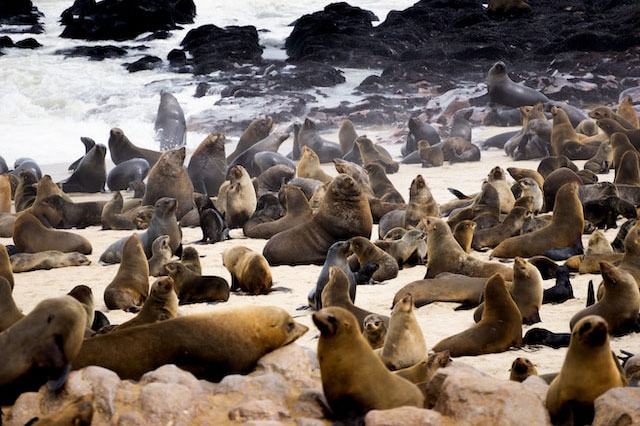Johannesburg – Cape fur seals with rabies have infected at least seven people in South Africa and vaccinations will be trialled to try to contain what is the first documented outbreak of the disease in a marine mammal population, a coastal management official said on Wednesday.
Those infected with the potentially fatal disease, for example after being bitten or scratched by a rabid seal, had received the correct treatment in time and there were no deaths, Cape Town coastal management manager Gregg Oelofse told AFP.
The City of Cape Town released a statement Wednesday warning people to steer clear from any seal behaving unusually or aggressively and to report such cases to authorities, who could consider euthanising the animal.
Vaccinations will be trialled on some seals although it would be impossible to roll this out to the two million Cape fur seals spread between southern Angola and South Africa’s Eastern Cape, the statement said.
The vaccinations will start with animals that come into regular contact with humans, for example, those who visited harbours or were in rehabilitation centres.
Authorities will also try to vaccinate seals from other species that occasionally visit the shores of southern Africa.
“We desperately want to stop this skipping to the next seal species,” Oelofse told AFP.
“We have never vaccinated a seal before so we are not sure how it is going to work,” he said. “It is not certain it will work, but it is the minimum best we can do.”
Increased aggression had been detected in Cape fur seals around three years ago, with around 70 unprovoked attacks on people, but it was only in June that it was confirmed that this was due to rabies, he said.
Since then about 15 cases had been confirmed among seals in South Africa and seven in humans, he said. This was the first documented outbreak in any marine mammal, he said.
Vaccinations would also be carried out on vagrant seals that occasionally visit South Africa’s shores to avoid them carrying the disease back to their colonies in the Southern Ocean.
These include a handful of elephant seals and around five Sub-Antarctic seals that come ashore a year.
“It is imperative to do whatever is possible to stop this,” he said.
Picture: Unsplash
For more African news, visit Africaninsider.com
Compiled by Matthew Petersen


